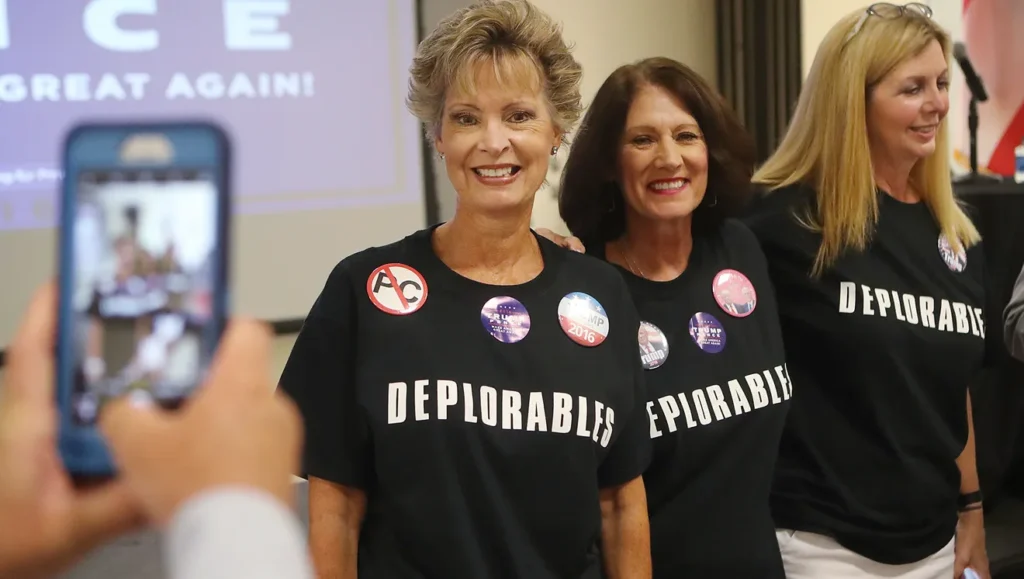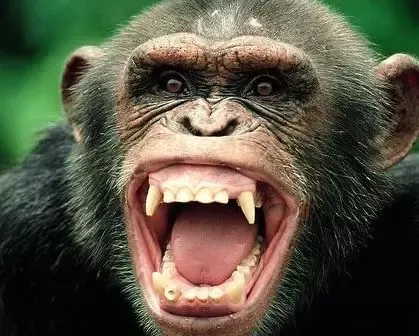A look at what drives Trumpism and its potential for the fall election

It’s funny how important things often come in threes. At the base of today’s triptych is Donald J. Trump, the likely victor in tomorrow’s sweep of primaries. All the matters that popped up today deal with the mystery of the man’s appeal and his potential second term. They are worth probing.
First, New York Times columnist Bret Stephens offered some interesting insights on what drives Trumpism – a source of wonder for anyone with half a brain, a sense of history and respect for responsible and responsive government. How can this boorish, immoral, often-unhinged would-be autocrat seem so inspiring to so many people?
Stephens, in a conversation with a colleague, offers the following:
“He’s a raised middle finger at all the people whom his supporters see as a self-satisfied, self-dealing cultural elite. The more that elite despises him, the more they love him. That’s why any good analysis of the Trump phenomenon has to begin with an analysis of the Us phenomenon, if you will: Where did those of us who were supposed to represent the sensible center of the country go so wrong that people were willing to turn to a charlatan like Trump in the first place? I have endless theories, but here’s another one: We tried to change the way people are instead of meeting them where they are. Neocons (like me) tried to bend distant cultures in places like Afghanistan to accept certain Western values. Didn’t work. Progressives tried to push Americans to accept new values on issues like identity, equity, pronouns and so on. That isn’t working, either. Trump represents a complete rejection of all that. For every American he scandalizes, another one feels seen, heard, reflected and understood by him.”

There’s a lot there. To unpack it, consider the “basket of deplorables” phrase that Hillary Clinton deployed to disastrous effect in September 2016. Speaking of half the Trump supporters, she said: “They’re racist, sexist, homophobic, xenophobic, Islamophobic.” The deplorables phrase was quickly snapped up proudly by such supporters, who took to wearing T-shirts emblazoned with it. Clinton even mentioned it in a book as contributing to her loss.
As Stephens suggests, the more the elites loathe Trump (and his supporters), the more his backers love him. The more they are pilloried by those of us who have benefitted from such forces as globalism, economic change and the need for education, the more Trumpists dig in behind the lead critic of such forces. The more they are accused of racism, sexism, xenophobia, etc., the more they will bask in such traits, wearing such qualities all the more brazenly.

The second development has to do with the national Supreme Court and its ruling that Trump can remain on the ballot in Colorado, despite the state Supreme Court’s ruling striking him from it because of his role in the insurrection of Jan. 6, 2021. The decision was not surprising, of course, given that the Colorado ruling was a 4-3 one to begin with and, as a cynic might suggest, the conservative majority on the national court includes three Trump appointees.
But it was surprising that the national court’s decision was unanimous as the justices agreed that individual states don’t have the right to bar candidates from federal offices, noting “especially the Presidency,” although they may do so for state offices. The majority held that federal legislation would be needed to determine who would be disqualified under section 3 of the 14th Amendment, which bars insurrectionists from holding office. Interestingly, the justices dodged the question of whether Trump had engaged in insurrection.
Unless something extraordinary happens – perhaps turning on any one of several Trump legal woes that all seem, oddly, to entrench Trumpists even more deeply — this decision suggests that we will see a Trump-Biden rematch in November. That prospect looks troublesome for Team Biden, in large part because voters seem to see Biden as much more enfeebled by his age (81) than they do Trump (77). Of course, both men are prone to mixing up facts and faces (Trump recently confusing Nikki Haley with Nancy Pelosi and suggesting Barack Obama was still in office, and President Biden confusing the presidents of Mexico and Egypt). Experts say such verbal stumbles aren’t necessarily signs of a loss of mental acuity, though Joe Q. Voter may disagree, at least in Biden’s cas

The third development involves Trump’s dishonesty and the hold he, nonetheless, commands on some associates. Some go to the mat for him, lying or refusing to cooperate with investigators, even when that means jail terms. The latest is former Trump chief financial officer Allen Weisselberg, with his guilty plea for lying under oath in the Trump civil fraud trial that will cost the former president $455 million. Weisselberg faces five more months in jail after the 100 days he served in an earlier case, but he can console himself with a $2 million severance payment Trump provided on the condition that he not cooperate with law enforcement unless forced to.
In that case, Trump seems to have purchased an underling’s loyalty. An exceptional number of Trump associates and supporters have been convicted of or faced various charges, with many going to jail without such payouts, though. Former aide Peter Navarro, who devised a plan to overturn the 2020 election, recently got four months in jail for ignoring a subpoena to testify in Congress about the Jan. 6 insurrection.
Of course, some Trump loyalists turned against him. Former longtime attorney Michael Cohen is perhaps the best known because his testimony was instrumental in Trump’s most costly civil fraud trial. But others have owned up to missteps they made on Trump’s behalf.
Trump’s support among the undereducated is well-documented. He even bragged about this in 2016, saying “I love the poorly educated.” But just why he appeals to people who should know better is a mystery as profound as that of his appeal to a broader base of Republicans. Along with the support his associates provide, his backing among college-educated white GOP members doubled to 60 percent over the last year, according to polling by Fox News.
What do they see in the man? How can they back him in spite of – or perhaps because of – his broad array of legal problems? How do they fall for his victimization narrative?
I’m reminded of a day in 1992, when I spent time with Trump visiting one of his then-bankrupt casinos in Atlantic City for a story for BusinessWeek. He was in financial ruin, his empire controlled by others for the benefit of his many creditors, and his reputation in New York City real estate was in the toilet. And yet, as he strode through the since-sold (and renamed) Trump Taj Mahal, gamblers reached out to touch him for luck, one begging him to autograph her slots-playing hand. No matter the reality that he was a wreck financially, he looked to them like a god, much as he does now to those at his rallies.
Part of this may be narcissistic self-delusion on his part. He casts himself publicly – and perhaps in his mind — as paradoxically godlike (“I alone can fix it”) and as a victim, perhaps much as his followers see themselves as victims of social and economic change. But it also may all be good acting of the sort that he honed on his years on “The Apprentice,” the show that elevated his tough-guy image for a national audience. For all his many verbal flubs, he is an extraordinary performer, one who even managed to disguise ill-health during and after his time in the White House.

If one believes he is the alpha, perhaps he is the alpha, at least to his devotees. The analysis I find most intriguing – albeit the most unusual and entertaining – is research related to animal behavior.
As Wikipedia notes, psychology researcher Dan P. McAdams pointed to the dominance behavior of alpha male chimpanzees such as Yeroen, the subject of a study of chimp social behavior by primatologist Frans de Waal. McAdams describes the similarities: “On Twitter, Trump’s incendiary tweets are like Yeroen’s charging displays. In chimp colonies, the alpha male occasionally goes berserk and starts screaming, hooting, and gesticulating wildly as he charges toward other males nearby. Pandemonium ensues as rival males cower in fear … Once the chaos ends, there is a period of peace and order, wherein rival males pay homage to the alpha, visiting him, grooming him, and expressing various forms of submission. In Trump’s case, his tweets are designed to intimidate his foes and rally his submissive base … These verbal outbursts reinforce the president’s dominance by reminding everybody of his wrath and his force.”
Primatologist Dame Jane Goodall compared Trump’s behavior with that of other male primates. “In order to impress rivals, males seeking to rise in the dominance hierarchy perform spectacular displays: Stamping, slapping the ground, dragging branches, throwing rocks,” Goodall said. “The more vigorous and imaginative the display, the faster the individual is likely to rise in the hierarchy, and the longer he is likely to maintain that position.”
The comparison has been echoed by political observers sympathetic to Trump, Wikipedia recorded. Nigel Farage, a Trump backer, said that in the 2016 United States presidential debates where Trump loomed up on Clinton, he “looked like a big silverback gorilla“, and added that “he is that big alpha male. The leader of the pack!”
Sadly, in all his reasonableness and moderation, as well as his frailness, Biden looks like someone the alpha chimp can stomp at will. Just how the two will compare in face-to-face debates (assuming that Trump doesn’t hide from them, as he has in the primaries), will be a telling spectacle, I suspect. Will America go for sober, thoughtful and measured, albeit it physically challenged, or will it go for a more ape-like manner? What will that choice say about our country?
